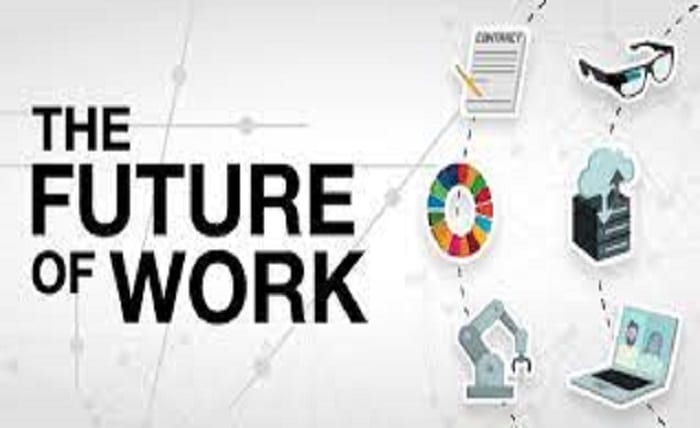The Future of Work: Reading Answers

The Future of Work: Reading Answers
In today’s fast-paced and rapidly evolving world, the nature of work is undergoing a significant transformation. The traditional 9-to-5 office job is no longer the norm, as technology, globalization, and changing work dynamics reshape the way we work. This article explores the future of work, focusing on the reading answers that shed light on upcoming trends and shifts in the workplace.
As society progresses, so does the way we work. The future of work is an exciting and sometimes uncertain concept, with various factors shaping its landscape. From automation and artificial intelligence to remote work and the gig economy, there are numerous trends that are redefining traditional work structures. In this article, we will explore these trends and their implications for the workforce.
Understanding the Evolution of Work
The Industrial Revolution
The Industrial Revolution marked a turning point in human history, bringing about significant changes in the way we work. The introduction of machinery and mass production shifted labor from agrarian-based economies to factories and urban centers. This transition revolutionized productivity and set the stage for future advancements.
Technological Advancements
Technological advancements have played a crucial role in shaping the future of work. The advent of computers, the internet, and digital technologies has automated tasks, streamlined processes, and increased efficiency. As machines become more sophisticated, they can perform complex tasks, leading to concerns about job displacement.
Globalization and Remote Work
Globalization has connected people across borders, allowing businesses to expand their reach and tap into a global talent pool. This has given rise to remote work, where individuals can collaborate and contribute from anywhere in the world. Remote work offers flexibility and opens up new opportunities for work-life integration.
The Impact of Automation and Artificial Intelligence
Job Displacement vs. Job Transformation
Automation and artificial intelligence (AI) have sparked debates about the future of jobs. While some fear widespread job displacement, it is important to note that automation often leads to job transformation. Repetitive and mundane tasks can be automated, freeing up time for employees to focus on more strategic and creative endeavors.
Upskilling and Reskilling Opportunities
To adapt to the changing demands of the future workforce, individuals need to embrace upskilling and reskilling opportunities. As automation takes over routine tasks, there will be a growing demand for skills that are uniquely human, such as critical thinking, problem-solving, and emotional intelligence. Lifelong learning will become crucial to staying relevant in the job market.
The Rise of the Gig Economy
Flexibility and Independence
The gig economy refers to a labor market characterized by short-term contracts and freelance work. It offers individuals the freedom to choose when and where they work, providing greater flexibility and autonomy. Gig work appeals to those seeking a non-traditional work structure and the ability to pursue multiple projects simultaneously.
Challenges and Benefits
While the gig economy presents several advantages, such as increased control over work-life balance and the potential for higher income, it also poses challenges. Gig workers often lack access to traditional employee benefits like healthcare and retirement plans. Additionally, inconsistent workloads and income fluctuations can create financial uncertainty.
Remote Work and Digital Nomadism
Advantages of Remote Work
Remote work has gained significant popularity, especially in the wake of the COVID-19 pandemic. It offers benefits such as reduced commuting time, cost savings, and improved work-life balance. Employees can work from the comfort of their homes or choose to travel while maintaining their professional commitments.
Digital Nomad Lifestyle
Digital nomads take remote work a step further by embracing a location-independent lifestyle. These individuals leverage technology to work while exploring different destinations around the world. While it may seem appealing, digital nomadism also requires careful planning, adaptability, and a reliable internet connection.
Embracing Virtual Collaboration and Communication
Remote Teamwork Tools
In a world where teams are increasingly distributed, virtual collaboration tools play a vital role in facilitating communication and coordination. From project management platforms to video conferencing software, these tools enable seamless collaboration across time zones and geographical boundaries.
Virtual Meetings and Project Management
Virtual meetings have become the norm, replacing traditional face-to-face interactions. With the right tools and protocols in place, teams can conduct productive meetings and brainstorming sessions remotely. Additionally, project management software helps teams track progress, assign tasks, and ensure timely completion of projects.
Balancing Work and Life in the Digital Age
Work-Life Integration
The boundaries between work and personal life are becoming more blurred in the digital age. Work-life integration recognizes that individuals may need to attend to personal matters during traditional working hours, as long as they fulfill their responsibilities. Employers are increasingly adopting flexible work policies to support work-life balance.
Mental Health and Well-being
While technology has made work more accessible, it has also brought about challenges to mental health and well-being. Constant connectivity and the pressure to be always available can lead to burnout and stress. Organizations must prioritize employee well-being by promoting self-care practices and establishing boundaries.
The Role of Human Skills and Emotional Intelligence
Adaptability and Creativity
As automation continues to reshape work processes, uniquely human skills like adaptability and creativity become increasingly valuable. Employees who can quickly adapt to new technologies and think critically will have a competitive advantage. Creativity, innovation, and the ability to solve complex problems will be highly sought after.
Empathy and Relationship Building
In a digitally connected world, the ability to connect with others on an emotional level becomes paramount. Empathy and relationship building skills foster collaboration, trust, and effective communication. Building meaningful connections with colleagues, clients, and customers will be crucial for success in the future workplace.
Conclusion
The future of work is dynamic and ever-evolving. Technological advancements, automation, remote work, and the gig economy are reshaping traditional work structures. As we move forward, it is essential to embrace change, upskill, and adapt to the new demands of the workforce. By harnessing our uniquely human skills and leveraging technology as a tool, we can create a future of work that is productive, fulfilling, and inclusive.



